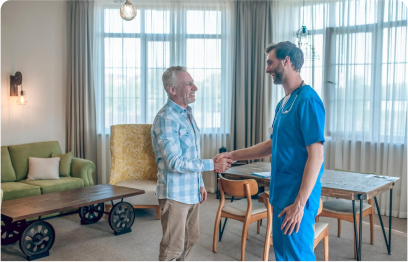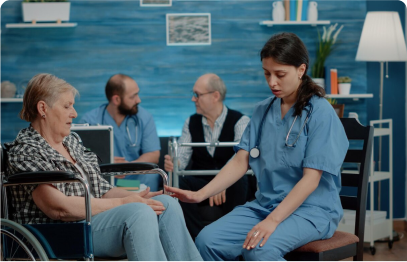
How Companionship Care Improves Senior Health and Happiness
Feeling alone hurts health. It is not a small issue. Older adults face it often. The good news: steady company helps. Strong social ties protect the heart, mind, and mood. Trusted health groups back this up.
Why Companionship Care Matters
Loneliness and social isolation raise real risks. They link to heart disease, stroke, dementia, depression, and early death. That is why connection is more than “nice to have.” It is care. It is prevention.
Across the world, about one in six people feel lonely. Many older adults do too. Leading researchers call this a public health concern. Companionship care answers this need at home, where life feels normal and safe.
What Regular Company Does For The Body And Mind
Heart and brain benefits
People with steady social ties live longer. Large studies show higher death risk in those who feel lonely or have few contacts. Social isolation raised all-cause mortality by 32% in one review. Loneliness raised it by 14%. Chronic loneliness was also tied to higher stroke risk in older adults. Companionship care builds daily contact and helps close these gaps.
Mood and mental health
Company eases worry and low mood. It gives routine, purpose, and a person to talk to. Health data link loneliness with higher anxiety and depression. Regular visits and calls can soften these strains and keep spirits up.
Safety and daily life
A companion notices small changes. Are meals skipped? Are meds missed? Is the balance off today? That watchful eye can prevent a fall or a crisis. Home care programs that include regular follow-ups have cut hospital readmissions for very sick patients, such as those with heart failure. More touchpoints often mean safer days
Signs A Loved One May Need More Company
Look for simple cues. Meals alone most days. Few calls or visits. Loss of interest in hobbies. Sleep trouble. Unopened mail. Missed pills. A home that used to be neat now feels cluttered. If several show up at once, it is time to add support.
What Good Companionship Looks Like
Good care is steady, kind, and practical. It starts with a real hello and time to listen. It brings simple routines: shared tea, a short walk, a favorite show, a puzzle. It adds help with rides to the doctor and reminders for meds and water. It keeps the family in the loop with brief updates.
Programs that match trained companions with seniors have shown clear gains. Clients report better mood and daily function. Families feel relief as well. This tells us the model works: trusted people, regular visits, and meaningful time together.
How Franklin Forever Care helps
At Franklin Forever Care, we make the company part of care. We show up on time. We greet each other by name. We build small habits that feel good and keep life moving. We join you for the doctor visit. We help with light exercise. We prep simple, healthy meals. We notice changes and share quick notes with family.
Our goal is simple: more good days at home. More laughs. More walks. More answered calls. Less worry about falls, missed meds, or long days without a voice in the room. That mix of heart and help is what companionship care should be.
If this sounds like what you want for yourself or someone you love, reach out. Let’s set up a plan that fits your routines and goals. Visit Franklin Forever Care to get started.




